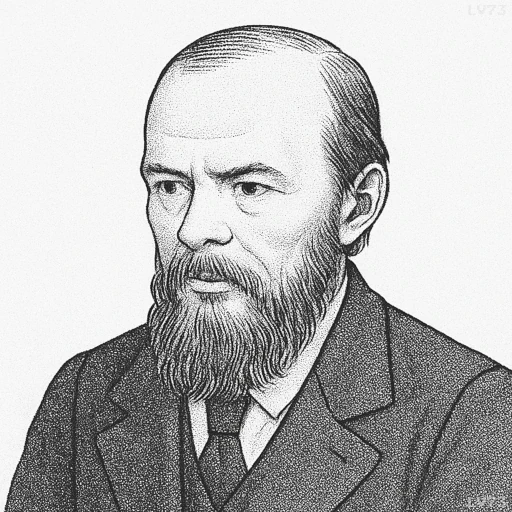“Power is given only to those who dare to lower themselves and pick it up. Only one thing matters, one thing; to be able to dare!”

- November 11, 1821 – February 9, 1881
- Born in the Russian Empire
- Novelist, philosopher
table of contents
Quote
“Power is given only to those who dare to lower themselves and pick it up. Only one thing matters, one thing; to be able to dare!”
Explanation
In this quote, Dostoevsky emphasizes the relationship between power and humility. At first glance, the idea that one must “lower themselves” to pick up power seems paradoxical, as power is often associated with dominance, control, or elevation. However, Dostoevsky suggests that true power does not come from self-aggrandizement or an overt assertion of authority, but from the courage to embrace the humbling process of self-sacrifice and personal risk. To “lower oneself” can be interpreted as an act of humility or selflessness, which allows individuals to connect with the needs, struggles, and realities of others. In doing so, they gain authentic power—not through manipulation or force, but through the ability to lead with compassion and understanding. This idea aligns with Dostoevsky’s belief in the moral and spiritual dimensions of power, which are not about control, but about the responsibility to uplift others.
The second part of the quote—”Only one thing matters, one thing; to be able to dare!”—places emphasis on courage and the willingness to act in the face of uncertainty or adversity. To “dare” is to take the risk of stepping into the unknown, of challenging the status quo, and of being willing to face both failure and self-doubt. In Dostoevsky’s view, power is not something that can be passively acquired or bestowed; it must be earned through action and the courage to confront obstacles that may seem insurmountable. This sentiment reflects his admiration for individuals who have the strength to challenge their own limitations and embrace responsibility, even when it comes at a personal cost. Characters in Dostoevsky’s works often grapple with this tension between fear and daring, such as Raskolnikov in Crime and Punishment, who struggles with his own sense of moral superiority and the consequences of his actions.
In the context of modern life, this quote speaks to the difficulties faced by those who seek to lead or create change, whether in politics, business, or personal relationships. In today’s world, true power is often not about exerting control but about the ability to inspire, to make difficult decisions, and to risk one’s own comfort for the sake of something greater. The ability to dare is particularly relevant in an age of global uncertainty, economic challenges, and social upheaval, where individuals and leaders are often called upon to act boldly in the face of fear and doubt. Dostoevsky’s words remind us that the ability to seize power in a meaningful way requires not only ambition but also the humility to acknowledge our vulnerability, and the bravery to step into the unknown, even when the outcome is uncertain.
Would you like to share your impressions or related stories about this quote in the comments section?
